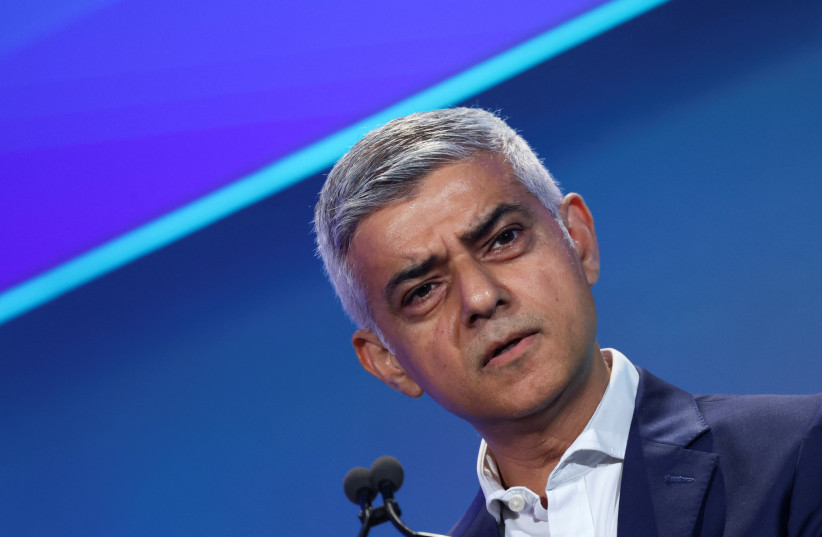The British Conservative Party’s candidate for London mayor said that Sadiq Khan, who currently holds the post, is “divisive” and has therefore “frightened” some of Britain’s Jewish community.
“I will ask for as much help as I can get in London because we need to defeat him,” Susan Hall said Monday night at a Conservative Friends of Israel event in Manchester that was part of the Tory party’s annual conference. “Particularly for our Jewish community.”
British Jewish groups quickly issued statements condemning Hall and defending Khan, who is London’s first Muslim mayor and has Pakistani ancestry. The Board of Deputies of British Jews said that Khan has always treated the Jewish community “with friendship and respect.” Longtime Jewish Labour parliament member Margaret Hodge called Hall’s comments “dog-whistle politics” and said, “Khan has always called out antisemitism, wherever it has reared.”
Since being elected mayor in 2016, Khan has prioritized ties with British Jewry, repeatedly calling out his own party over its handling of the antisemitism controversy that plagued its former leader, Jeremy Corbyn. He attended a community program commemorating the Holocaust as his first official public engagement, joined the Jewish Labour Movement, and has made several pro-Israel pronouncements.

“I will never apologize for standing up for our Jewish community”
When asked by Sky News if she would apologize for her comments in the wake of the criticism she has received, Hall said: “I will never apologize for standing up for our Jewish community.”
Hall, a member of the London Assembly, also said that she has Jewish friends who have considered immigrating to Israel because they feel unsafe in the city.
“Since Sadiq Khan has taken over, these sort of attacks have doubled — literally doubled, over 1,000 or around about 1,000 this year,” she told Sky News, without specifying if she meant antisemitic attacks.
The Community Support Trust (CST), a British antisemitism watchdog, reported that there were 447 antisemitic incidents in Greater London between January and June 2023 — 4% fewer than the amount from the same period last year.
